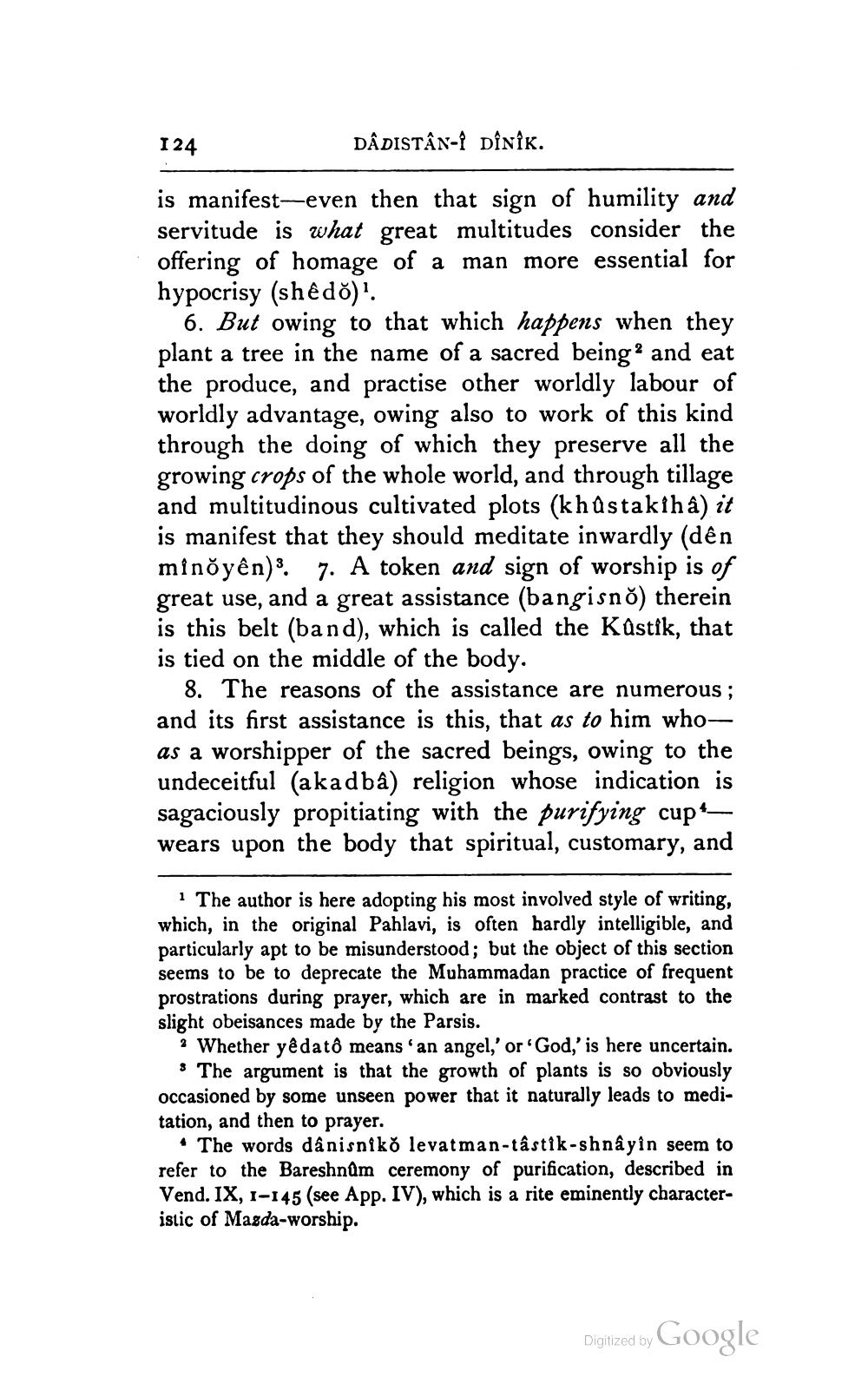________________
I 24
DÂDISTÂN-I DÎNÍK.
is manifest-even then that sign of humility and servitude is what great multitudes consider the offering of homage of a man more essential for hypocrisy (shêdo)?
6. But owing to that which happens when they plant a tree in the name of a sacred being and eat the produce, and practise other worldly labour of worldly advantage, owing also to work of this kind through the doing of which they preserve all the growing crops of the whole world, and through tillage and multitudinous cultivated plots (k hüstakiha) it is manifest that they should meditate inwardly (dên minoyên)? 7. A token and sign of worship is of great use, and a great assistance (bangisno) therein is this belt (band), which is called the Kästik, that is tied on the middle of the body.
8. The reasons of the assistance are numerous ; and its first assistance is this, that as to him whoas a worshipper of the sacred beings, owing to the undeceitful (akadba) religion whose indication is sagaciously propitiating with the purifying cupwears upon the body that spiritual, customary, and
1 The author is here adopting his most involved style of writing, which, in the original Pahlavi, is often hardly intelligible, and particularly apt to be misunderstood; but the object of this section seems to be to deprecate the Muhammadan practice of frequent prostrations during prayer, which are in marked contrast to the slight obeisances made by the Parsis.
Whether yê datô means an angel,' or 'God,' is here uncertain.
The argument is that the growth of plants is so obviously occasioned by some unseen power that it naturally leads to meditation, and then to prayer.
• The words danisniko levatman-tâstik-shnâyin seem to refer to the Bareshnům ceremony of purification, described in Vend. IX, 1-145 (see App. IV), which is a rite eminently characteristic of Mazda-worship.
Digitized by Google




